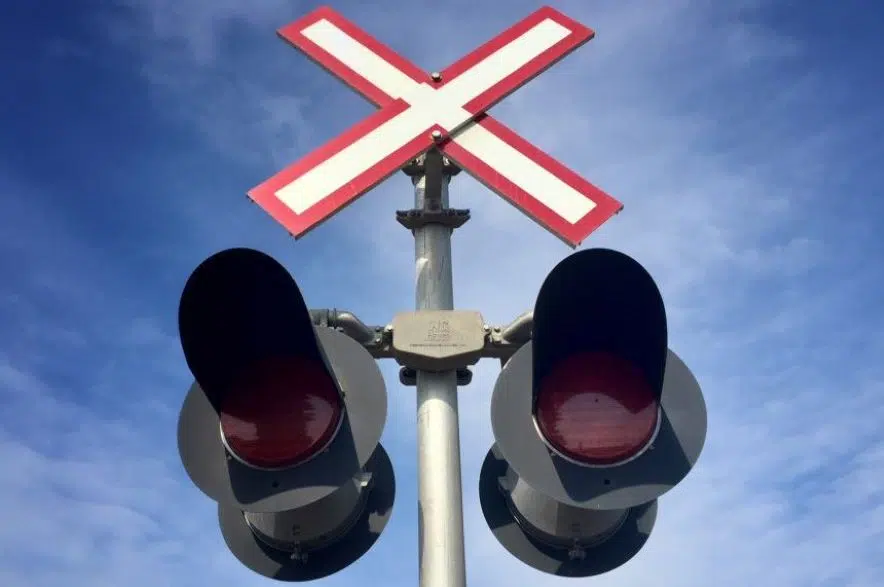Saskatchewan is contributing more than half a million dollars to help keep the province’s short line railways moving.
On Friday, the provincial government announced $530,000 in investments for 13 railways.
“Short line railways play an important role in getting Saskatchewan’s food, fuel and fertilizer on their journeys to worldwide markets, which helps keep our export-based economy strong to sustain our quality of life,” Highways Minister Lori Carr said in a release.
“We are proud to invest in this transportation sector as it is essential to keeping our great and growing province strong.”
READ MORE:
- Feds to help Regina with rail relocation plan; other projects also get funding
- Province reminds people to be vigilant during National Rail Safety Week
The funding — which comes from the provincial government’s Short Line Railway Improvement Program — will help with track upgrades and expansion, improved crossing surfaces and sightlines, bridge maintenance, track rehabilitation and other projects.
Investments are being made in:
- Big Sky Rail, Delisle (Eston, Elrose region) — $87,035
- Carlton Trail Railway (Saskatoon to Prince Albert area) — $37,515
- Great Sandhills Railway (Swift Current to Leader area) — $43,089
- Great Western Railway (Assiniboia, Shaunavon, Coronach area) — $129,909
- Last Mountain Railway (Regina to Davidson) — $29,155
- Long Creek Railroad (west of Estevan) — $25,000
- Northern Lights Rail (west of Melfort) — $25,000
- Red Coat Road and Rail (Ogema area) — $25,000
- Southern Rails Cooperative (south of Moose Jaw) — $25,000
- Stewart Southern Railway (southwest of Regina to Stoughton) — $28,297
- Thunder Rail (Arborfield area) — $25,000
- Torch River Rail (Nipawin to Choiceland area) — $25,000
- Wheatland Rail (Cudworth, Wakaw area) — $25,000
“By investing in continuous improvements to our tracks, Saskatchewan short line railways ensure that rail is a safe, reliable, and efficient transportation option for agricultural producers, industrial facilities, and Saskatchewan businesses of all sizes,” Western Canadian Short Line Railway Association president Andrew Glastetter said in the release.
“Many short line railways are community owned, and serve rural communities, while also playing a vital role in the overall supply chain. Short line railways have a positive impact on highways infrastructure, the environment, and rural economies, while transporting freight on infrastructure that is primarily maintained and funded privately.”
The 13 short line railways in the province operate on 2,123 kilometres of track.
Grants from the province cover up to 50 per cent of eligible project costs and are determined based on how much track each short line owns.
Networks with less than 80 kilometres of track receive at least $25,000, while larger networks get a proportional amount based on how much track they operate.











